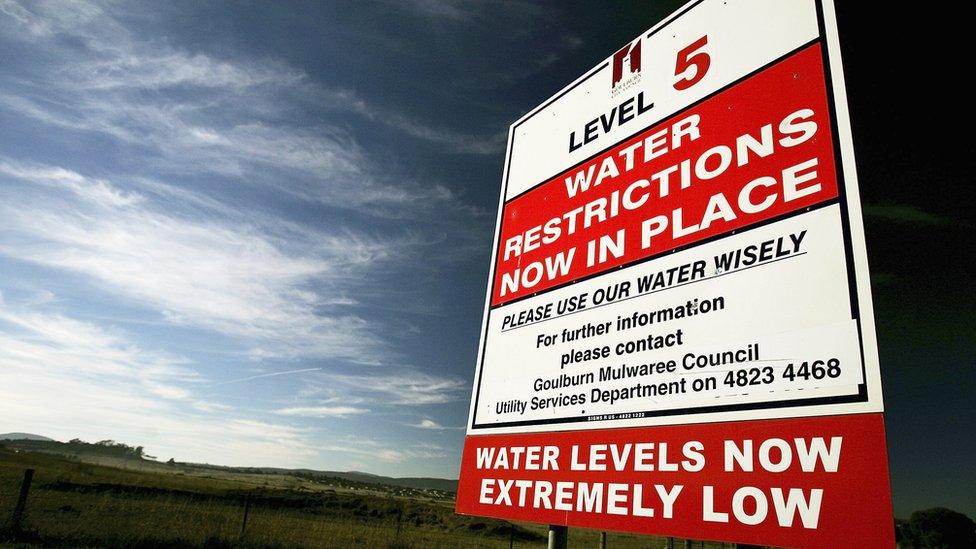Sustainability the key to long-term corporate health
- Published

The world we live in is undergoing extraordinary change, the like of which has never been seen before.
Driving this transformation is an unprecedented explosion in the human population, accompanied by a remarkable surge in economic growth and wealth creation.
The consequences for the natural world that supports us all are both serious and, in some cases, potentially irreversible.
Indeed, the numbers, many of which are outlined below, are as alarming as they are revealing.
On the one side we have what academics refer to as the Great Acceleration, external - for example, a massive upswing in demand for food and water, energy use, greenhouse gas emissions, fertiliser consumption and ocean acidification.
On the other, a plundering of Earth's finite natural resources and a destruction of its natural habitats - from deforestation and soil degradation to collapsing fish stocks and species extinction - that cannot be sustained.

But there is a growing realisation that these largely unintended consequences of our species' success cannot be left unchecked, for the very simple reason that they will ultimately impact severely on our ability to prosper.
Action is needed, and it falls to business, along with society at large and the political establishment, to drive this change.
Rapid change
And change is already afoot. A growing number of businesses, both big and small, new economy and old, are embracing the sustainable agenda.
If nothing else, the economic cost of inaction is simply too great. Indeed, a recent study backed by the United Nations put the cost to the global economy of the damage done to the natural world by humans at between $2tn-$4.5tn a year.

And these costs will increasingly fall to companies, and of course their customers, as they are forced to pay to protect or replace the natural resources upon which their business depends.
As Polly Courtice, director of Cambridge University's Institute for Sustainability Leadership, says: "For a long time companies separated out sustainability issues from their core [activity], but they are now realising [these issues] are central to their ability to function as a growing business".
Trailblazers such as consumer goods giant Unilever and retailer Kingfisher were driven by visionary bosses, in this case Paul Polman and Ian Cheshire, who believed embracing sustainability was not just the right thing to do but was in the best long-term interests of the company.
Reducing costs is an obvious start, such as implementing energy efficiencies. Many have gone a step further, with established giants such BMW, Coca-Cola, Goldman Sachs, Google, H&M, Ikea, Nike and Walmart among many others that have committed to 100% renewable energy.

Equally, relying on finite and dwindling resources that will inevitably become more expensive is no recipe for long-term success. Identifying these risks in the supply chain early is key to securing the long-term sustainability of the business itself.
Some companies, such as sportswear group Puma and its owner Kering, are pioneering so-called environmental profit and loss accounting, where the business's environmental impact is costed precisely throughout its entire supply chain.
Increasing regulation is also forcing change, as governments use instruments such as pollution taxes and a meaningful carbon price, which is inevitable given the need to cut emissions from fossil fuels, to help achieve ambitious climate-change targets.
But it's not just about avoiding business risks, it's about embracing opportunity - the benefits of enhancing brand reputation in a world where consumers are becoming increasingly environmentally aware may be harder to quantify, but are no less rewarding long term.
In this way, more and more companies are finding that sustainability can be a key driver of revenue growth.
Loss of forest and farming land
13 million
hectares of forest - the size of Greece - lost per year 2000-2010
10 million
hectares of farming land lost every year through erosion and degradation
-
33% of farming land lost since 1960 due to erosion and degradation
-
1 billion employed in farming around the world
-
30% of global forests cleared
-
1.6 billion people rely on forests for food, water, clothing and shelter
Indeed, many are engaging increasingly with both the sharing economy, where swapping, renting and sharing replace ownership of goods and services, and the so-called circular economy, where one company's waste is another's resource and where products are designed to be repurposed once their natural life comes to an end.
The financial community is also waking up to the sustainable agenda, with an increasing number of fund managers and pension funds engaging with companies to highlight the risks of inaction.
The stranded assets campaign, which identifies the dangers of over-valuing fossil fuel reserves that will have to stay in the ground if dangerous climate change is to be avoided, has been particularly successful, with more than 500 global institutions so far divesting almost $3.5tn from energy companies around the world.
'Short-termism'
There remain, however, significant obstacles to change.
"Most companies are still focused on the relatively short term, on the next quarter's numbers," says David Symons, director of consultancy WSP Parsons Brinckerhoff.

As long as company boards focus on short-term profit and shareholder returns, the longer-term demands of a more sustainable business will suffer.
And despite widespread change in public attitudes, consumer inertia remains an issue, as value understandably remains a key priority in times of economic stress.
This is why, argues Ms Courtice, the burden of driving change falls largely on the corporate sector.
"Companies have to lead... they can make decisions quickly that the political system can't," she says.
The long-term health of their businesses, and the health of the planet that ultimately sustains us all, depends upon it.
This article is the first in a series looking at sustainable business.